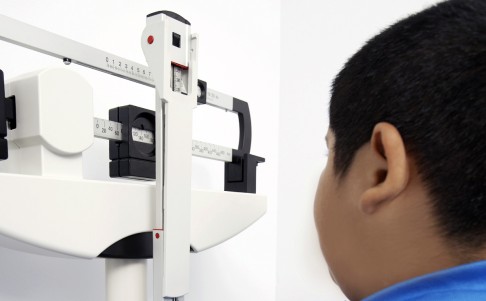
Six things Hongkongers can do to lower their risk of dementia
Experts warn one in three Hongkongers over 80 will have dementia by 2050, but it's never too late to make lifestyle choices that will reduce the risk

Amid the recent buzz about dementia and a gloomy projection that by 2050 one in three Hongkongers over 80 will have dementia, it’s important to remember there are a number of things we can do to potentially reduce our risk of dementia and/or delay its onset.
The 2014 World Alzheimer Report, commissioned by Alzheimer’s Disease International, analysed the risk factors for dementia. It showed that control of diabetes and high blood pressure, as well as quitting smoking and reducing cardiovascular risk, have the potential to reduce the risk of dementia in later life.
One in 10 Hongkongers over 65 suffers from a form of dementia, the most common of which is Alzheimer's disease. The rate goes up to one in three among those aged 80 or above. Currently, up to 80,000 people have dementia. By 2050, experts forecast that 3.59 per cent of Hong Kong’s population will have dementia.
Along with the dire prognosis for the city’s future elderly reported on Monday was the news that a government report on planning for services for the elderly due out soon will not contain concrete policies for tackling dementia, even though experts tagged the chronic illness as the biggest problem facing the city as its population ages.
University of Hong Kong social work professor Law Chi-kwong says that Hong Kong will be unable to handle the explosion of dementia patients over the coming years and that the problem, having been swept under the carpet for so long, has become a monster which threatens to overwhelm the city.
Here are some actions we can take to help ourselves.
1. Eat healthily

Load up on things like vegetables, berries and fruit, fish and unsaturated fats from milk products and spreads; decrease your intake of sausages, eggs, sweets, sugary drinks, salty fish and saturated fats from milk products and spreads. Making healthy dietary choices in midlife may prevent dementia in later years, according a doctoral thesis published last year at the University of Eastern Finland.
The study, which involved nearly 1,500 participants aged 39 to 64 years at the beginning of the study, found that those who ate the healthiest diet at the average age of 50 had an almost 90 per cent lower risk of dementia in a 14-year follow-up study than those whose diet was the least healthy.
A high intake of saturated fats was linked to poorer cognitive and memory functions and to an increased risk of mild cognitive impairment in a 21-year follow-up. It was also shown that a higher saturated fat intake was associated with an increased risk of dementia among those carrying a genetic risk factor for Alzheimer's disease, the epsilon 4 variant of the apolipoprotein E (ApoE) gene.
"Even those who are genetically susceptible can at least delay the onset of the disease by favouring vegetable oils, oil-based spreads and fatty fish in their diet," says researcher Marjo Eskelinen.
In addition, those consuming three to five cups of coffee daily had a lower risk of dementia than those who drank less or more coffee than that.
2. Be physically active

People who engaged in physical activity at least twice a week had a lower risk of dementia than those who were less active, another University of Eastern Finland study published last year found. Although these protective effects were observed in the entire study population, regardless of their sex or genetic risk factors, they were particularly strong among overweight and obese individuals.
Staying physically active, or becoming more active, after midlife may also contribute to lowering dementia risk, especially in people who are overweight or obese at midlife.
Another study, published in 2007 in the journal Neurology, found that people aged 65 and older who regularly walk and get other forms of moderate exercise appear to significantly lower their risk of developing vascular dementia, the second most common form of dementia after Alzheimer's disease.
The four-year study involved 749 men and women in Italy who were over age 65 and did not have memory problems at the beginning of the study. It was found that the top one-third of participants who exerted the most energy walking were 27 per cent less likely to develop vascular dementia than those people in the bottom one-third of the group. Participants who scored in the top one-third for the most energy exerted in moderate activities lowered their risk of vascular dementia by 29 per cent and people who scored in the top one-third for total physical activity lowered their risk by 24 per cent compared to those in the bottom one-third.
3. Maintain a healthy weight

Early- to midlife obesity increases one’s risk of dementia later in life, with the age at which a person becomes obese a key factor, according to a study published last year in the BMJ (British Medical Journal). The study found a tripling in risk for people with severe obesity in their 30s.
Using anoymised data from hospital records for the whole of England from 1999 to 2011, the analysis revealed an incremental decrease in overall risk of hospital admission for dementia the older a person was when a diagnosis of obesity was first recorded, irrespective of their sex.
For those aged 30-39, the relative risk of developing dementia was 3.5 times higher than in those of the same age who were not obese. For those in their 40s, the relative risk for the obese was 70 per cent more than non-obese; for those in their 50s, the relative risk was 50 per cent more; and for those in their 60s it was 40 per cent more.
Interestingly, people in their 70s with obesity were neither at heightened or lowered risk of developing dementia, while those in their 80s were 22 per cent less likely to develop the disease, the findings indicated. The researchers venture that a possible explanation for the particularly high risk found in early life and midlife may lie in the fact that heavier weight is associated with diabetes and cardiovascular risk factors, which are themselves linked to a heightened risk of dementia. It would seem that if people can stave off significant weight gain until at least their 60s, or survive long enough with obesity, they may have a lower risk of developing dementia, the researchers suggest.
Obesity and lack of physical activity are important risk factors for diabetes and hypertension, and the 2014 World Alzheimer Report found that diabetes can increase the risk of dementia by 50 per cent.
4. Stub out

Stopping smoking is strongly linked with a reduction in dementia risk, according to the 2014 World Alzheimer Report. Studies of dementia incidence among people aged 65 years and over show that ex-smokers have a similar risk to those who have never smoked, while those who continue to smoke are at much higher risk.
Even passive smoking increases the risk of severe dementia, according to a 2013 study in China by King’s College London and Anhui Medical University. The researchers interviewed 5,921 people aged over 60 in the rural and urban communities of Anhui, Guangdong, Heilongjiang, Shanghai and Shanxi provinces to characterise their levels of environmental tobacco smoke exposure and smoking habits and assess levels of dementia syndromes.
They found that 10 per cent of the group had severe dementia syndromes and that this was significantly related to exposure level and duration of passive smoking. The associations with severe syndromes were found in people who had never smoked and in former and current smokers.
“The increased risk of severe dementia syndromes in those exposed to passive smoking is similar to increased risk of coronary heart disease - suggesting that urgent preventive measures should be taken, not just in China but many other countries,” says one of the study researchers, Dr Chen Ruoling, senior lecturer in public health at King's College London.
5. Get enough vitamin D

Older people who don’t get enough vitamin D – the “sunshine” vitamin – may double their risk of developing dementia and Alzheimer’s disease, suggests a study that appeared last year in Neurology.
The study involved nearly 1,700 dementia-free people over the age of 65. They had their blood tested for vitamin D, which includes vitamin D from food, supplements and sun exposure. Dietary vitamin D is found in fatty fish such as salmon, tuna or mackerel, and in milk, eggs and cheese.
After an average of six years, 171 participants developed dementia and 102 had Alzheimer's disease. People with low levels of vitamin D had a 53 per cent higher risk of developing dementia and those who were severely deficient had a 125 per cent higher risk compared to participants with normal levels of vitamin D. The results remained the same after researchers adjusted for other factors that could affect risk of dementia, such as education level, smoking and alcohol consumption.
6. Maintain a youthful outlook
Our attitude towards our age has a massive impact on the likelihood of being diagnosed with dementia. Elderly people who saw themselves as “older” performed dramatically worse on a standard dementia screening test, making them five times more likely to meet the criteria for dementia, in a 2012 study by the University of Exeter in the UK.
In the study, 68 people aged between 60 and 70 years were primed to either feel older or younger than others taking part in the study. Those in the "older" group were told the participants ranged in age from 40 to 70, encouraging them to think of themselves as being at the upper end of the age spectrum, while those in the "younger" group were told that participants ages ranged from 60 to 90 years, encouraging them to think of themselves at the lower end of the age spectrum. All participants were then given one of two articles to read, which either focused on the effects of age on memory loss or on the impact of ageing on general cognitive ability.
The participants then completed a series of standard clinical tests that included a standard dementia screening test, the Addenbrooke's Cognitive Examination-Revised. Seventy per cent of people who were encouraged to see themselves as older and to believe that ageing was associated with a general decline in ability met the criterion for dementia. This compared to an average of 14 per cent in the other groups.
Find out more about dementia from this fact sheet by the Jockey Club Centre for Positive Ageing.
